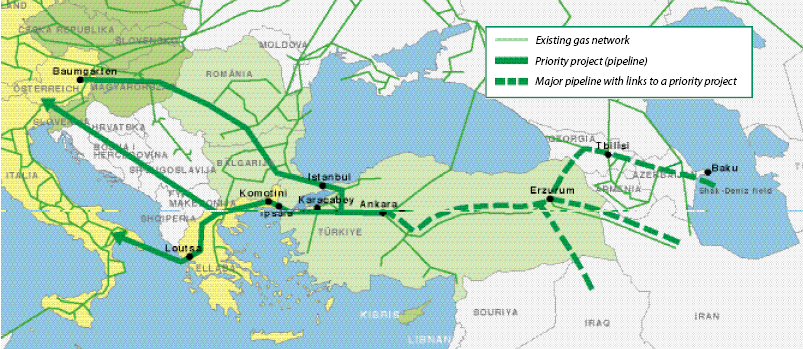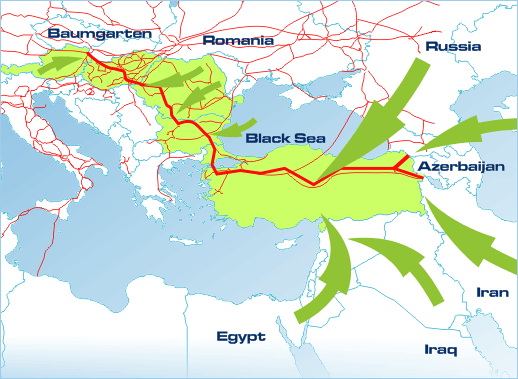Re: The Rise of the Russian Empire: Russo-Armenian Relations

Sophisticated military hardware will be paraded during May's Victory Day Parade in Moscow for the first time since the split up of the U.S.S.R, a military official said on Wednesday. Celebrations to mark the end of Russia's participation in WWII are to be held on Red Square on May 9. The victory parade will see a display of the country's most advanced military technology, such as BMP-3 infantry fighting vehicles, BTR-80 armored personnel carriers, T-90 tanks, Topol-M intercontinental ballistic missile mobile launchers, Tu-160 and Tu-95MS strategic bombers. "After a 17-year-long break, the president of Russia took the decision to resume military parades with military hardware," Moscow Military District Commander General Vladimir Bakin said, adding that the Topol-M launchers would not be carrying missiles during the parade. Bakin also said over four thousand fireworks would be launched at the celebrations. The first Victory Parade was held on Red Square on June 24, 1945 on the order of the then-Supreme Commander-in-Chief, Joseph Stalin.
Source: http://en.rian.ru/russia/20080305/100715307.html
Russia to show off bombers and ICBMs at Victory Day parade

Sophisticated military hardware will be paraded during May's Victory Day Parade in Moscow for the first time since the split up of the U.S.S.R, a military official said on Wednesday. Celebrations to mark the end of Russia's participation in WWII are to be held on Red Square on May 9. The victory parade will see a display of the country's most advanced military technology, such as BMP-3 infantry fighting vehicles, BTR-80 armored personnel carriers, T-90 tanks, Topol-M intercontinental ballistic missile mobile launchers, Tu-160 and Tu-95MS strategic bombers. "After a 17-year-long break, the president of Russia took the decision to resume military parades with military hardware," Moscow Military District Commander General Vladimir Bakin said, adding that the Topol-M launchers would not be carrying missiles during the parade. Bakin also said over four thousand fireworks would be launched at the celebrations. The first Victory Parade was held on Red Square on June 24, 1945 on the order of the then-Supreme Commander-in-Chief, Joseph Stalin.
Source: http://en.rian.ru/russia/20080305/100715307.html










 , and Hong Kong with 30. Russia is second only to the United States in the number of its super-rich. An additional 35 Russians have crossed the $1 bln mark in the past year, helped along by the continued rise of the ruble against the dollar. "Sixteen years after the collapse of the Soviet Union, Russia, with 87 billionaires, is the new No. 2 country behind the U.S., easily overtaking Germany, with 59 billionaires, which held the honour for six years," said Forbes associate editor Luisa Kroll. The Unites States accounts for 469 (42%) of the world's billionaires. Topping the list of Russia's billionaires is Oleg Deripaska with $28 bln, placing him ninth in the world, ahead of the more famous Roman Abramovich with $23.5 bln, in 15th place. Deripaska's holding company Basic Element owns huge assets in insurance, auto manufacture, and aluminum, while Abramovich, since selling his oil company Sibneft to Russian state-controlled gas giant Gazprom in 2005, has bought up steel and mining assets. He also owns Chelsea Football Club. Russia's richest woman remains Elena Baturina, the 45-year-old second wife of Moscow Mayor Yury Luzhkov, 71. Forbes estimates that she has added $1.1 bln to her personal wealth in the past year, bringing it up to $4.2 bln and putting her in 253rd place globally. Baturina founded Inteko in 1991, which became Moscow's largest construction firm in the years after her husband became mayor. In late 2006 she sued the Russian edition of Forbes over a cover story. The world's richest man this year is U.S. investor and philanthropist Warren Buffet, ousting his friend Bill Gates from the top spot, which the Microsoft founder had held for 13 years. The two reportedly play regular games of online bridge together, and Buffet has pledged most of his wealth to the Bill & Melinda Gates Foundation, a charity focused on healthcare improvement and poverty reduction. Buffet's wealth has shot up to $62 bln with the stock growth of his holding Berkshire Hathaway, while Gates is now worth $58 bln, $2 bln more than last year, putting him in third place. In second place is Mexican telecoms tycoon Carlos Slim with an estimated $60 bln.
, and Hong Kong with 30. Russia is second only to the United States in the number of its super-rich. An additional 35 Russians have crossed the $1 bln mark in the past year, helped along by the continued rise of the ruble against the dollar. "Sixteen years after the collapse of the Soviet Union, Russia, with 87 billionaires, is the new No. 2 country behind the U.S., easily overtaking Germany, with 59 billionaires, which held the honour for six years," said Forbes associate editor Luisa Kroll. The Unites States accounts for 469 (42%) of the world's billionaires. Topping the list of Russia's billionaires is Oleg Deripaska with $28 bln, placing him ninth in the world, ahead of the more famous Roman Abramovich with $23.5 bln, in 15th place. Deripaska's holding company Basic Element owns huge assets in insurance, auto manufacture, and aluminum, while Abramovich, since selling his oil company Sibneft to Russian state-controlled gas giant Gazprom in 2005, has bought up steel and mining assets. He also owns Chelsea Football Club. Russia's richest woman remains Elena Baturina, the 45-year-old second wife of Moscow Mayor Yury Luzhkov, 71. Forbes estimates that she has added $1.1 bln to her personal wealth in the past year, bringing it up to $4.2 bln and putting her in 253rd place globally. Baturina founded Inteko in 1991, which became Moscow's largest construction firm in the years after her husband became mayor. In late 2006 she sued the Russian edition of Forbes over a cover story. The world's richest man this year is U.S. investor and philanthropist Warren Buffet, ousting his friend Bill Gates from the top spot, which the Microsoft founder had held for 13 years. The two reportedly play regular games of online bridge together, and Buffet has pledged most of his wealth to the Bill & Melinda Gates Foundation, a charity focused on healthcare improvement and poverty reduction. Buffet's wealth has shot up to $62 bln with the stock growth of his holding Berkshire Hathaway, while Gates is now worth $58 bln, $2 bln more than last year, putting him in third place. In second place is Mexican telecoms tycoon Carlos Slim with an estimated $60 bln.


Comment